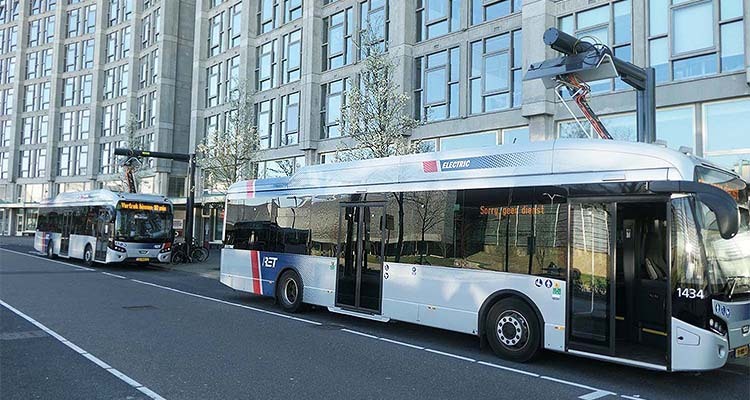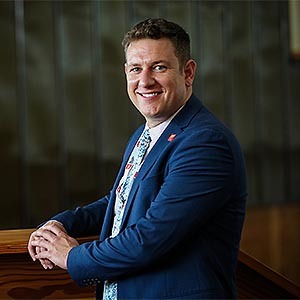
How transport firms can benefit from working with operational researchers
At the start of a new year many transport companies will be considering how to make business improvements. One often overlooked yet powerful business tool is Operational Research (OR), a discipline that combines advanced mathematics, data analytics, and human insights to provide a toolkit
to support business decision making.
Originating from World War II, OR’s roots trace back to scientists and engineers innovating strategies that optimized military operations. Analyzing data, mapping processes, simulating scenarios, and planning optimal routes became pivotal in minimizing military losses and ensuring mission success.
OR can turn data, analytics and insights into real-world solutions that solve complex problems. OR specialists can work closely with businesses to understand their challenges and goals by creating mathematical models, algorithms, and customized tools to address specific problems.
Now transport firms such as RET, Rotterdam’s public transport operator in the Netherlands, are using OR techniques to enable them to make the switch to electric buses. OR helped RET overcome challenges to enable a smooth and successful transition to electric buses.
Electrifying buses in Rotterdam by 2030
In the fight against climate change, almost all countries are taking measures to limit CO₂ emissions. A significant sector in this energy transition is the

transportation system, where it is particularly important to replace fossil fuel-powered vehicles with sustainable vehicles. Within public transportation, this mainly concerns bus transport, which is still often carried out with diesel buses.
When RET wanted to switch to electric buses there were several challenges to overcome. These included the limited electric bus range and long charging times that would affect the regular service and the fact that if there were delays, buses could be left stranded with insufficient charge.
To address these challenges and ensure a smooth transition to electric buses, RET turned to the Rotterdam School of Management, Erasmus University (RSM) to use operational research to find a solution. The project consisted of three phases.
Phase 0: Preparation stage
In the early stages of the project, RET’s main goal was to quantify the impact of electrification on the current schedule. RSM developed a simulation model of the bus network using OR techniques to analyze the impact of several factors including battery capacity, energy consumption patterns, and the capacity of the charging infrastructure.
This model evaluates how many buses would have low battery levels at the end of each day. This analysis showed that even in the most optimistic scenario with a large battery, low energy consumption and high charging capacity, multiple buses would have insufficient energy to complete all trips in the current schedule.
The simulation revealed that existing schedules couldn’t accommodate electric buses without major planning adjustments. As a result, RET adapted its planning, and the simulation model was used to optimize the charging strategy, accounting for bus delays. The model revealed a real-time charging approach was needed to reduce charging moments and maintain the bus service reliability.
Phase 1: Northern network
This phase focused on the first set of 50 buses that would be electrified and put into service at the end of 2019. The buses run on several different lines on the north side of the city, where they charge at seven different terminal stations during the day at fast chargers. At night, the buses are connected to chargers in the garage with a lower power to start the day with a full battery.
RSM focused on the development of optimized charging strategies that would strike a balance between planning that is robust against uncertainty and that avoids unnecessary use of fast chargers – which can have a major impact on the battery life and the city’s electricity network.
The question soon arose as to what the impact of delays would be on state-of-charge buses. If a bus misses a charging moment due to delay, this can cause the bus to get into trouble later in the day. The simulation model developed in phase 0 was extended to evaluate this impact and it showed that it was necessary to make real-time adjustments to the charging schedule.
As a result, a real-time charging strategy was developed, based on the optimal offline charging schedule and real-time information, which indicates which bus should charge at which time. This provided a robust solution while the number of charging moments could be kept low.
Phase 2: Southern network
In this phase attention shifted to introducing electric buses on the south side of Rotterdam. Unlike the first set of buses, this set would operate on routes that share a common terminal station. This would allow for a situation where all buses charge at the same station. This clustering of charging activities made it important to consider the interaction between the lines and to investigate the required number of chargers at this station.
This network also offered the opportunity of locally generating renewable energy and using it directly to charge buses. As a result, the possibility of constructing a solar park at the bus station was evaluated. The RSM team did a feasibility study of having a solar park, which would allow for energy generation uncertainties.
Results showed that up to 70 percent of energy for charging could come directly from solar panels during the summer, with the potential for a seven percent increase in renewable energy use through energy storage.
To conclude
Throughout the project, multiple important insights were obtained. For example, it soon became clear that the impact of electrifying RET’s bus network required major changes to their operations. In Phase 1 the impact of delays meant that even conservative charge strategies cannot prevent buses from getting into trouble.
Real-time adjustments are therefore essential to handle delays and ensure buses have adequate charge. Also, it was found that hub-based charging networks were ideal for local renewable energy usage.
The collaboration between RSM and RET and the use of operational research has enabled an efficient transition to electric buses. The charging schedule optimization model has shown that RET could do with fewer charging facilities and that significant improvements can be made to the charging schedule.
Using this model RET can control various parameters and compare different charging strategies. The model has now been integrated into RET’s day-to-day planning software, contributing to the successful electrification of Rotterdam’s bus fleet.
It has also demonstrated the power of OR to solve complex problems and enable firms to make better decisions to improve how they operate in the real world, including helping firms transition to cleaner energy.
For a list of the sources used in this article, please contact the editor.
Seb Hargreaves is Executive Director of The OR Society. OR is a scientific approach to the solution of problems in the management of complex systems that enables decision makers to make better decisions. The OR Society is a member-led organization, supporting professional operational researchers across industries and academia. It promotes the understanding and use of operational research in all areas of life, including industry, business, government, health and education. The society is a registered charity, helping OR specialists push the boundaries of the discipline through publications and events as well as undertaking outreach work.